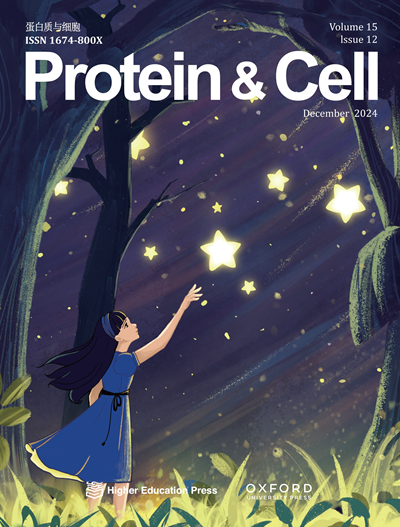EZH2 in non-cancerous diseases: Expanding horizons.
IF 12.8
1区 生物学
Q1 CELL BIOLOGY
引用次数: 0
Abstract
Enhancer of Zeste homolog 2 (EZH2), a histone methyltransferase within polycomb repressive complex 2 (PRC2), plays a crucial role in epigenetic regulation by silencing gene expression through trimethylation of histone 3 at lysine 27 (H3K27me3). Beyond its well-documented oncogenic functions, emerging research has revealed EZH2's involvement in various non-cancerous pathologies. For instance, EZH2 is critical in regulating immune responses, particularly in modulating T cell differentiation and cytokine production, which affects inflammation and immune homeostasis. EZH2 also controls fibroblast activation and extracellular matrix (ECM) remodeling, influencing critical processes such as cell differentiation, tissue repair and energy homeostasis. Additionally, EZH2's epigenetic regulation of neuroinflammatory processes is linked to neuronal health and survival. Recent advancements in EZH2 inhibitor therapies demonstrate promising potential for treating a range of non-cancerous conditions, with preclinical trials suggesting efficacy in mitigating disease progression. This review highlights the expanding functional scope of EZH2, emphasizing its epigenetic mechanisms and the therapeutic opportunities for targeting EZH2 in non-cancerous diseases.EZH2在非癌性疾病中的作用:拓展视野。
Zeste homolog 2的增强子(Enhancer of Zeste homolog 2, EZH2)是多梳抑制复合体2 (polycomb suppressicomplex 2, PRC2)中的一种组蛋白甲基转移酶,它通过组蛋白3在赖氨酸27位点(H3K27me3)的三甲基化来沉默基因表达,在表观遗传调控中起着至关重要的作用。除了有充分证据的致癌功能外,新兴研究表明EZH2参与各种非癌性病理。例如,EZH2在调节免疫反应,特别是在调节T细胞分化和细胞因子产生方面至关重要,而T细胞分化和细胞因子产生影响炎症和免疫稳态。EZH2还控制成纤维细胞活化和细胞外基质(ECM)重塑,影响细胞分化、组织修复和能量稳态等关键过程。此外,EZH2对神经炎症过程的表观遗传调控与神经元健康和存活有关。EZH2抑制剂治疗的最新进展显示出治疗一系列非癌性疾病的良好潜力,临床前试验表明其在缓解疾病进展方面的疗效。本文综述了EZH2的功能范围,强调了其表观遗传机制和靶向EZH2治疗非癌性疾病的机会。
本文章由计算机程序翻译,如有差异,请以英文原文为准。
求助全文
约1分钟内获得全文
求助全文
来源期刊

Protein & Cell
CELL BIOLOGY-
CiteScore
24.00
自引率
0.90%
发文量
1029
审稿时长
6-12 weeks
期刊介绍:
Protein & Cell is a monthly, peer-reviewed, open-access journal focusing on multidisciplinary aspects of biology and biomedicine, with a primary emphasis on protein and cell research. It publishes original research articles, reviews, and commentaries across various fields including biochemistry, biophysics, cell biology, genetics, immunology, microbiology, molecular biology, neuroscience, oncology, protein science, structural biology, and translational medicine. The journal also features content on research policies, funding trends in China, and serves as a platform for academic exchange among life science researchers.
 求助内容:
求助内容: 应助结果提醒方式:
应助结果提醒方式:


